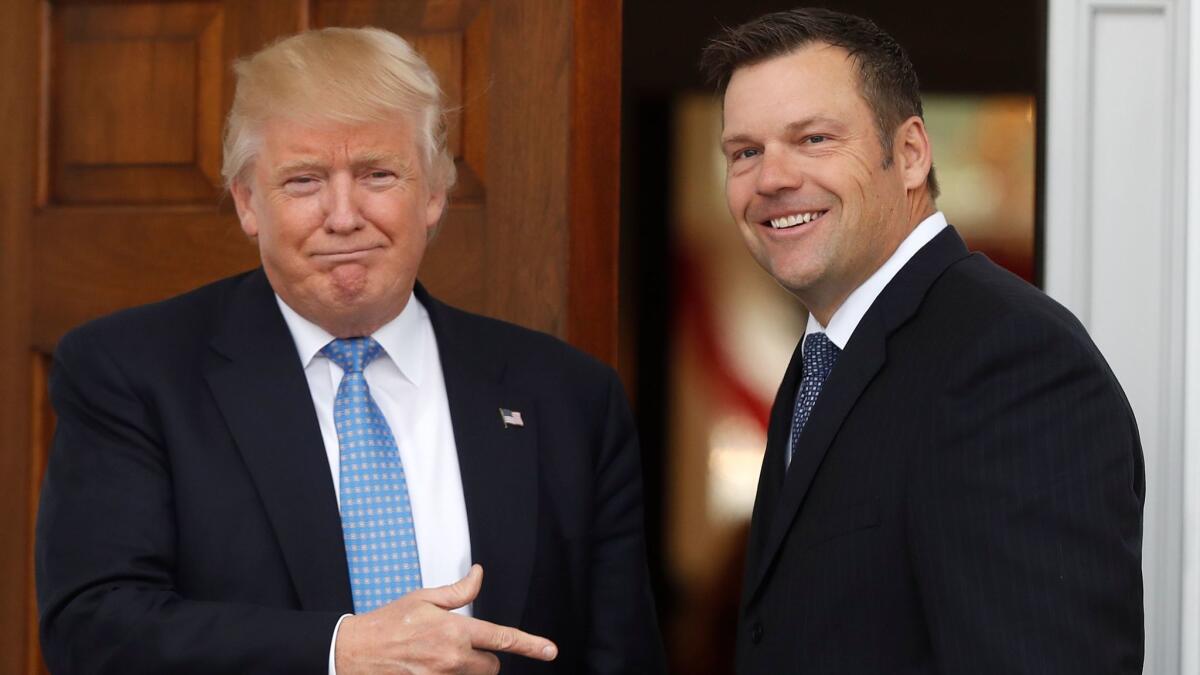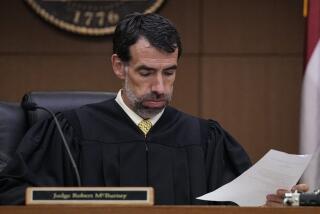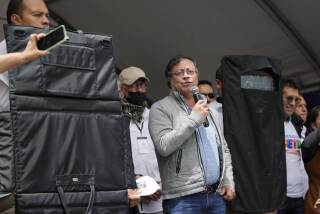District court refuses to block federal government voter information collection

Reporting from Washington — A federal court in Washington on Monday cleared the way for President Trump’s election commission to ask states to turn over personal voter information as part of its investigation into Trump’s claims about voter fraud in the 2016 presidential election.
The U.S. District Court ruled against the Electronic Privacy Information Center, a public-interest research group that had sought a temporary restraining order to block the Presidential Advisory Commission on Election Integrity. The court rejected arguments that the commission’s request for certain voter data violated Americans’ privacy and that the commission did not follow constitutional proceedings.
Trump has claimed that millions of fraudulent votes were cast in November, mostly by immigrants who entered the country illegally. He has provided no evidence, and nearly every credible election study has concluded that voter fraud is either non-existent or too small to affect outcomes.
The commission has been hit with a flurry of lawsuits since its vice chairman, Kansas Secretary of State Kris Kobach, sent a letter to state officials nationwide June 28 requesting voter information, including dates of birth, partial Social Security numbers and information about which elections voters participated in since 2006.
In addition to the Electronic Privacy Information Center, or EPIC, lawsuit, the Lawyers Committee for Civil Rights Under Law, the American Civil Liberties Union, Public Citizen, Common Cause and the NAACP Legal Defense and Educational Fund have also sued, citing privacy concerns and other alleged violations.
The commission had its first official meeting July 19. It was closed to the public, but livestreamed online.
The commission defended its data request, saying it only asked for publicly available information on a voluntary basis and that the information was necessary for strengthening public confidence in voting processes.
As of July 18, officials from 21 states have said they will not submit any voter information. Officials from 29 states have agreed to submit information, but said their state laws allow them to provide only some of the information requested. Even Kansas, where Kobach is secretary of state, will only provide partial information.
In response to EPIC’s complaint, the commission voluntarily stopped collection of voter information on July 10, pending the court’s ruling. As of that day, only Arkansas had released voter information, which the commission said it would not download. The commission had originally asked states to provide all voter information by July 14.
California Secretary of State Alex Padilla said in a June 29 statement he would not provide “sensitive” voter information, arguing that “California’s participation would only serve to legitimize the false and already debunked claims of massive voter fraud made by the president, vice president and Mr. Kobach.”
Trump said in a tweet that the pushback from states suggested they had something to hide.
In the lawsuit, EPIC argued Kobach’s request for voter information violated constitutional privacy rights — particularly because the letter stated the information would become publicly available — and could enable identity theft and financial fraud. It also noted the commission did not comply with a separate federal privacy law that requires public notification about what information is being collected and why.
EPIC President Marc Rotenberg said in a statement that the group will “push forward” to safeguard Americans’ personal information. “The commission cannot evade privacy obligations by playing a shell game with the nation’s voting records.”
Several members of the commission have been criticized for supporting Trump’s unproven claims of voter fraud rather than looking at the election in an unbiased and nonpartisan manner. Kobach has previously led efforts to enforce stricter voting rules at registration and the polls. The commission also includes attorney Hans von Spakovsky, a former Federal Election Commission member who has consistently fought for more regulations, and Cincinnati Mayor Ken Blackwell, who accidentally posted Ohio voters’ Social Security numbers on the secretary of state’s website.
ALSO
Trump and Pence defend voter fraud panel at first meeting
Trump takes aim at Senate Republicans on healthcare
Democrats unveil ‘Better Deal’ agenda as party tries to retake Trump’s mantle on jobs, economy
More to Read
Get the L.A. Times Politics newsletter
Deeply reported insights into legislation, politics and policy from Sacramento, Washington and beyond. In your inbox three times per week.
You may occasionally receive promotional content from the Los Angeles Times.










